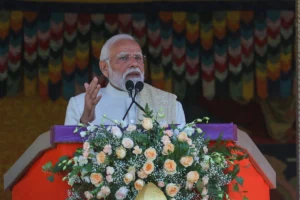
Amongst the multiple threats on the global economy atmosphere, fears are there showing the advent of an oncoming recession which is topping the worry list of the world’s leaders responsible for business and government globally.
The depression has its bigger sound before the recession. People are pessimistic also after Elon Musk stated recently that he thought the world is already in a recession. He says, the situation may worsen over the course of the next one and a half years.
The two-year hiatus due to the Covid-19 pandemic compelled the world’s top leaders to meet at the Swiss mountain village of Davos in the beginning of the November month. The weeklong agenda was to tackle global issues along with finding solutions to the challenge which is one of the world’s most threatening issues.
In fact, one opinion cannot display the real picture. Until the majority of the global financial experts say the same, a few such speculations cannot be taken for granted.
The fear of the economists say that it is too close now –just one year ahead of us. They say that a recession could occur in 2023. This might happen particularly if the Fed’s interest rate goes up stifle demand from people and businesses, or otherwise if the inflation strategy falls flat.
Also the opinion seems divided on this question. On one hand the economists warn of a recession, the bulls dismiss the fear calling it exaggeration.
India is trying hard to clock $350bn worth of services exports during the 2022-23 which will be a growth of 40% over the previous fiscal year. The reason being, the key sectors including hospitality, entertainment and travel are set to post swift recovery post pandemic.
With the manufacture opting for moving out of China, India is all set to grab the opportunity, capitalizing on it.
The grand good news is that the Indian manufacturing sector witnessed a 460% jump in the year 2021-22 as against 2019-20 with new investment announcements which are made by the private sector increasing by one hundred and fifty per cent during the same period in comparison to the previous financial year.
Global good news for India is that the country has emerged as a preferred investment destination. The evidence is shown out of the fact that India has recorded highest ever annual Foreign Direct Investment (FDI) inflow which is 83.57 billion US dollars during the last fiscal year.
This probably is going to be enhanced even further due to the geopolitical crisis out of the Russia-Ukraine war.
From the domestic financial arena good news reveals that the financial system in India has become more resilient now with bad debts of banks having been cleaned up. Thanks to digitalization, Indian economy is expected to get more formalised which in response are going to give the government more tax-raising clout.
Most importantly most of India’s sovereign debt is domestically owned thus protecting the country from the risk of defaults and or a complete sovereign debt crisis. That is something several developing economies could encounter in the months and years to come.
To read more such news, download Bharat Express news apps



















